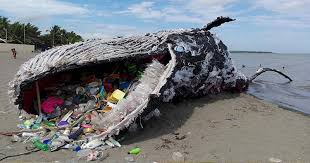According to the [U.S.] EPA, the average person produces approximately 4.9 pounds of “solid waste” or trash per day. Thankfully, you can recycle many everyday household items to help promote a cleaner, greener environment.

It really isn’t that hard to Reduce your waste and Recycle. But rather than focus on the problems, spreading the word about easy solutions is more palatable for me.
Waste Solutions
No doubt you have heard it all before and you may have already adopted some measures. You don’t need to be a hard-core zero waste advocate. Start with a minor changes and add one more each week.
Get your friends on board. You can set the example for your family, friends and workplace because we need to do better than the following graph indicates.
Simple Waste Solutions
Take Care or Take your Trash Home
• Eliminate your need for bins in forest areas. Birds and animals may spread litter from public trash cans around and it ends up contaminating waterways. When you visit a park or beach, remember to take your trash with you. Keep trash and recyclables in a bag or backpack until you can put them in a proper receptacle.
Public refuse bins in Japan are almost non-existent. You won’t see any trash in Japanese streets either. Japanese citizens take their rubbish home so it can be sorted to Recyclables, compostables and refuse.
• Keep a Litter bag in your car. Be like the Japanese people.

Choose Re-usable and Compostable Packaging
• Carry your own Re-usable stainless steel straws or decorative re-usable Water Bottle and Travel mug instead of buying bottled water or coffee in polystyrene cups.
• Avoid one-use plastics – they can’t be refilled unless you are happy to swallow micro-plastic.
• Use Beeswax Wraps instead of Plastic wrap – or make your own Beeswax Wrap
• Polystyrene litter such as disposable coffee cups or packing materials can be eaten by animals who mistake it for food. Polystyrene can poison and/or clog stomachs leading to death by either toxicity or starvation.
Once released into the environment, polystyrene products does not decompose to a non-recognizable form.
Reduce Litter at Home
Keep backyards clean and free of things that can blow into the street and become litter.
Tie up garbage and recycling bags securely so loose papers and other items cannot fall out and become litter.
Avoid overfilling your bins and ensure the lid is properly closed after depositing your trash or recycling inside, preventing accidental spills and overflows contaminating local waterways – endangering wildlife.
Recycling in the Kitchen
• Cloth napkins and kitchen towel, for spills and cleaning, rather than paper disposables. They are much more absorbent and easily washed out for re-use many times over.
• Compost food scraps
Start a Worm Farm for food scraps and cardboard packaging. My worms love devouring cardboard. Break it up and wet it. A cardboard box is a good alternative to buying worm blankets.
• Use your consumer power to influence choice: Avoid buying food or ancillary items with excess packaging when you shop. This will decrease litter from the start.
Plastic shopping bags take between 10-20 years to decompose.
Wildlife such as Turtles mistake plastic bags for jellyfish and eat them causing suffocation, drowning and gut obstruction. Do not accept plastic bags for items you purchase, if you can carry your purchase without them.
Alternatives to Plastic Carry Bags
• Refashion the scrap fabrics into re-usable bags or use natural canvas or fibre bags for your groceries and errands. Keep several reusable bags handy, in your car or handbag/backpack, so that they are always handy whenever you might need them.
Plastic beer can holders or bags can entangle an animal swimming. It may suffocate or drown. Six packs rings causing 6 million sea bird deaths a year and over 100,000 marine mammal deaths.
• Support companies who promote bio-degradable and compostable packaging. Peanut’s shell was constricted for six years before it was found.

Eco Six Pack Rings, started in 2017 by three different groups, are made with all-natural ingredients. These include both straw and wheat fiber. While sturdy enough to hold six full-size cans, Eco Six Pack Rings are intended to fall apart if accidentally littered. This prevents them from creating the same environmental damage their plastic forefathers did. According to the company, “the product will degrade in less than 200 days (depending on the ecosystem).”
www.customearthpromos.com/eco-blog/eco-six-pack-ringss

Plastics used in six pack drink rings takes 450 years to decompose!
Re-purpose and Recycle fabric, Towels or Sheets
• Repurpose adult clothing into clothes for children
• Up-cycle a Used Towel into an apron and a hooded towel for bathing baby
• Turn pretty squares of fabric into Beeswax wraps
Sustainable solutions
If you are in USA, and you are into visual learning, here are heaps of solutions. I especially noted the online shipping options: who knew Amazon/online options were so wasteful? Choose slower shipping to save cardboard.
Smoking in the Workplace
Cigarette butts, are made of a form of plastic and can persist in the environment for 10-12 years! 4.5 trillion non-biodegradable cigarette butts are littered worldwide.
• Do you have a “no smoking” policy at your house or workplace? Containing cigarette butt litter is facilitated by requiring smokers to use only designated areas or not smoking at all.
• Do not dump anything toxic down a storm drain.
Marketing Flyers and Advertising Leaflets
• Remove flyers or take-out menus promptly from your post box/front door or windscreen before they are blown away and become litter.
• You can stop litter at the source. Reduce your junk mail by writing to Direct Marketing companies to request no junk mail to be sent to your address.
• Participate and promote local recycling programs such as kerbside cleanup (Australia).
Here are some more ideas on reducing and recycling waste:
Metal: Old forks and spoons, as well as cans, are perfect for making a variety of unique items like a custom keyholder, beautiful jewellery, or a fun mirror. Old cans make excellent cookie cutters, too.
Clothing and bedding: Get creative and use an old pair of jeans to make a funky “jeans chair.” Old bedding can be torn or cut into smaller pieces and used for cleaning rags. Any type of fabric is also great for reupholstering furniture if you’re really feeling crafty.
Coffee grounds and tea bags: You can use coffee grounds as fertiliser or dried coffee grounds or tea bags [plastic free tea bags, of course], in the freezer as a deodoriser, too.
How to recycle
Do it Right – Dispose of rubbish properly
Talk to your family and friends about recycling to reduce the amount of material you throw away. Spread the word, and not the litter.
This is not hard to do at all! Tell your family and friends about recycling and what you are doing to reduce the amount of material you throw away.
This may influence them to adopt more sustainable practices. It is vitally important. Our planet depends on it.




